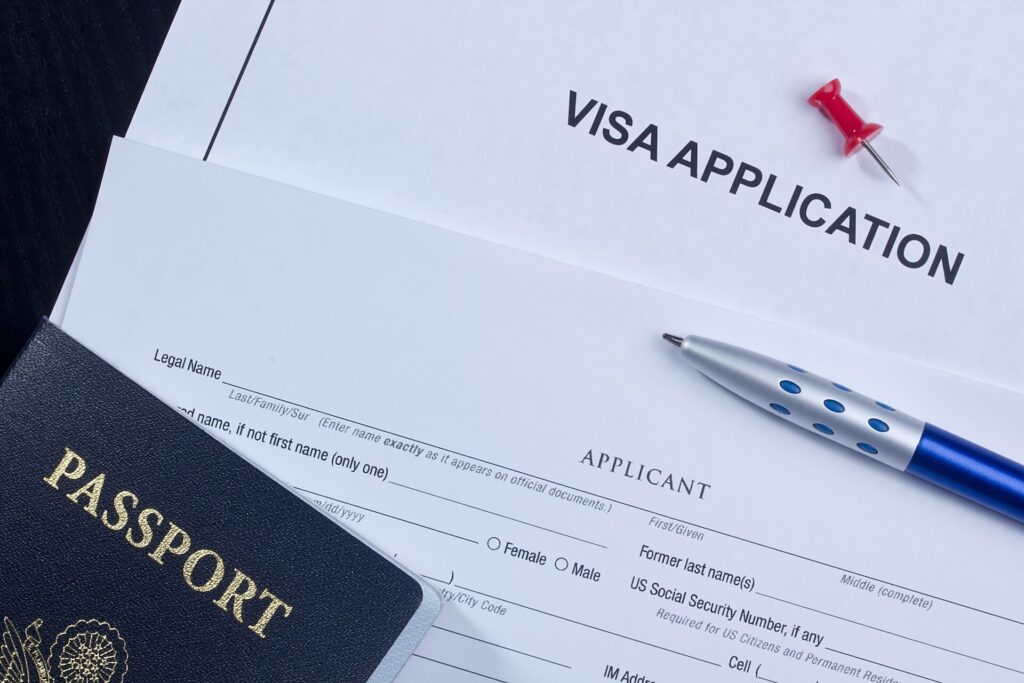How can I make moving easier? It’s a question many future expats want to answer before facing one of the most challenging periods of their lives. If you are one of them, learning how to move efficiently (and save your sanity) should be your number one priority. We made it easy for you – all you have to do is look at the relocation tips we came up with.
#1 Figure Out the Moving Game Plan
One of the main preconditions of a successful move is a good organization. You can be familiar with all the relocation hacks there are, but it won’t be enough if you do not have a solid plan. Remember that relocation abroad implies even more logistics than an interstate one, and that’s just the tip of the iceberg.
Therefore, you must set your goals (and priorities) straight, create a relocating to-do list, think about all of the tasks ahead, and set a suitable timetable for them. Each relocation demands excellent time management skills, especially when you plan to move abroad.
Create a Relocation Budget and Do Your Research First
Although you may identify relocation with boxing up, there is a lot more to be done before you actually begin with this part of the move. So you can enjoy relocation benefits to the fullest, you must ensure that you’re financially able to move and live in another country. Therefore, researching the cost of living and housing options in your future destination is necessary.
However, aside from living costs, you have to consider many other things when planning to live abroad. Before boarding the plane, it would be good to:
- Research the laws of the new country,
- Get familiar with the safest places,
- Explore the best healthcare options,
- Learn about the school system (if you’re relocating with kids),
- Begin learning a new language if you’re relocating to a place where a foreign language is used,
- Find out more about the new culture so that you won’t deal with culture shock after the move.
Obtain All Necessary Documents
While you do not need any special documentation to travel cross-country, visas and passports are the most important documents needed to travel abroad. However, the visa obtaining process differs depending on the country you’re relocating to. Be sure you contact the country’s embassy to learn about visa types and requirements. Simultaneously, ensure your passport is valid for at least six months after the move.

#2 Look for the Most Reliable International Moving Company
Even if you’re relocating on a low budget, you can’t organize a move without getting international moving services – that is, unless you’re not relocating only with the one backpack and a sense of adventure. Moving overseas implies dealing with logistics to a much bigger extent than when it comes to cross-country relocation. Therefore, hiring international movers is a necessity rather than a wish – just make sure to avoid relocation scams and choose a completely trustworthy international mover.
On the other hand, you can choose only to get the basic service to help you move by sea or let movers help you with other relocation tasks, such as packing, shipping, or even storing. Whether you opt for professional overseas vehicle shipping or, for example, book storage services is entirely up to you. However, the more professional help you get, the more efficiently you’ll move.
#3 Gather the Boxes and Rest of the Packing Supplies Before You Start to Pack
There is nothing worse than realizing that you do not have all the required supplies before you begin boxing up. So it doesn’t happen to you, it would be good to create a checklist with all the materials and equipment you’ll utilize and gather them in a timely manner. Consider:
- Different sized boxes – use new ones for more delicate objects, but keep in mind that used cardboard can be a cost-effective solution for objects that do not require much protection (books, clothes, toys, and the like).
- Bubble wrap, packing paper, and peanut foam – wrapping materials will help add extra protection to your belongings before they are packed in the box.
- Newspapers, old lines, rugs, and towels – these materials are a good substitute for professional wrapping materials – just ensure to utilize them for less breakable belongings.
- Moving blankets – since furniture and appliances can’t fit into a box, you will need some other way to keep them safe, and that’s where relocation blankets come along.
- Furniture sliders/straps/dollies – they will help you move furniture pieces and appliances out of your home and into the truck easily and quickly.
- Tape – aside from boxes, it should be used to keep relocation blankets in place. However, do not let tape get in touch with wooden or leather furniture because it can cause severe damage.
- Additional supplies, like markers for labeling.
Make Sure All the Boxes Are Properly Packed and Sealed
Remember that boxes and other belongings are more easily damaged during an international move than a cross-country one. If you want to move across the world, you must count on a lot more miles and displacements of your belongings – they will not be transported only in a truck but must become a part of an oversea shipment. That is why all of your objects must be wrapped and packed without a fault. Opting for professional packing services instead of packaging the belongings on your own is always a better option.

#4 Box Up Only the Essential Items
How to efficiently pack to move? One of the most valuable tips we can give you is to pack only those items you can’t live without. It’s the best way to save your time, energy, and money. You’ll spend fewer hours boxing up belongings on your inventory list, but that is not all. By bringing a smaller number of things, you’re reducing the weight of your cargo, which will undoubtedly affect the lower relocation costs.
How to Declutter Before Moving Internationally?
Decluttering is one of the essential parts of every move, but not many who know how to do it properly end up leaving or bringing too much. What should you consider leaving before moving overseas? Here are some examples:
- Duplicated belongings – count how many rugs, towels, or cutlery sets you have and think about how many of them you really need.
- Objects you keep out of guilt – the international move is a perfect excuse to leave behind all of the ugly gifts you hate but keep out of respect or love.
- Damaged objects – chipped mugs and plates, kitchen gadgets that do not work, or torn beddings shouldn’t be a part of your cargo.
- Heavy objects – bring as few furniture and appliance pieces as possible since they are the heaviest belongings you own.
- Items you don’t use – if it’s not been used in the last year, it’s likely that you won’t utilize them in a new country.
The most efficient way to pack for moving is to bring the objects that hold practical, sentimental, or financial value. The rest of your belongings should be donated, gifted, sold, or recycled.
If you could use more advice on what to get rid of and what to keep, be sure you watch the video below:
#5 Go With Room by Room System When Packing
Aside from decluttering, you also must know when and where to start boxing up. In what order should I pack my house to move, you ask? It’s always best to begin with those rooms you don’t use much often, like basements and attics. Items in those rooms are not used much, which means you can box them up way before the relocation day comes.
As the boxing up process progresses, ensure you tackle one room at once – it will prevent you from running around from one space to another. The most used rooms, such as the kitchen and bathrooms, should be left for last. However, packing fragile items and other delicate belongings does take time, so be sure you leave enough space in your schedule.
When should you start packing to move to a new home? It depends on how many items you want to bring and how complicated boxing them up will get. However, in order to pack and declutter properly, ensure you begin at least three weeks before the relocation day.
Dedicate One Room to the Packing Purpose
If you want to be truly organized during the packaging process, dedicate one room for packed boxes, so they don’t get in your way. Simultaneously, you should also plan where you’ll be doing the boxing up in your home – it’s the best solution if you want to avoid misplacing the supplies.
You Will Need a Lot of Help to Pack, so Do Not Hesitate to Ask For It
Even if you’re relocating abroad alone, that doesn’t mean that you must do everything by yourself. That is especially important when it comes to the boxing up process, as one of the most challenging tasks you’ll face. Instead of doing it alone, one thing at a time, make a packing party! Let your loved ones help you fill the boxes. It will be helpful in more than one way – when you’re thousands of miles away, it will become one of your cherished memories.

#6 Separate Relocation Day Necessities From the Rest of Your Belongings
When boxing up your belongings, make sure you separate relocation essentials you use every day from the rest of your belongings. Keep in mind that things that end up in your cargo most likely won’t be available for you in the next several weeks. Therefore, the belongings you’re going to need in the next month must be a part of your personal luggage. Think about setting aside the following belongings:
- Change of clothes,
- Electronics (with their chargers),
- Documents like marriage certificates, medical, school, and vet records (if you’re relocating with pets),
- Kids’ favorite toys,
- Basic toiletries,
- Medicine,
- Disposable masks (if you’re traveling abroad during COVID-19).
#7 Notify Everyone About the Move and Update Your Personal Information
Although not everyone must know your reasons to move, many must be informed about it, and it goes beyond your family, friends, and acquaintances. Government institutions also must be updated.
Firstly, in order to continue receiving important mail, ensure you change your home address with USPS. Secondly, inform the IRS, banks, loan, and insurance providers about the move. Lastly, cancel your utility and internet providers, as well as a gym and other memberships, since you likely won’t be able to transfer them to another country anyways. Don’t let this become one of the things you forget to do when you move. If you do, you may face more or less severe consequences.
Now That You Know All the Tips on How to Move Efficiently, It’s Time You Start the Preparations
These efficient hacks should serve as a base for success when relocating to a new home abroad. All that is left to do is start the process! An international move can indeed be really challenging and hard to handle, but the tips we provided should help you tackle it and come out on the other side as a winner. Still, remember – the more professional help you get, the better your chances of having a smooth and stress-free move. After all, no one will help you move efficiently more than professional movers.
